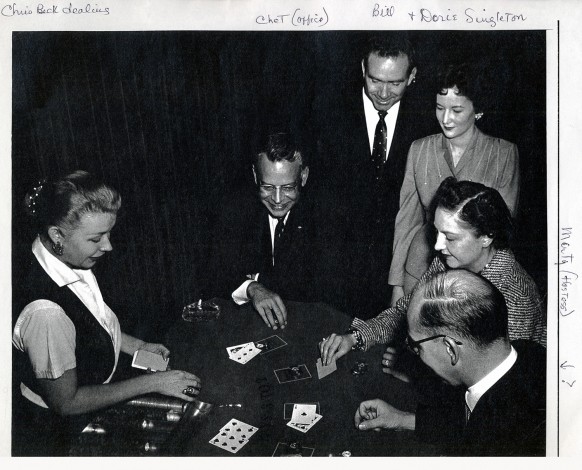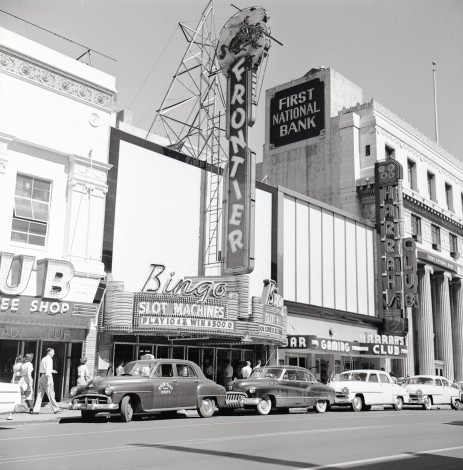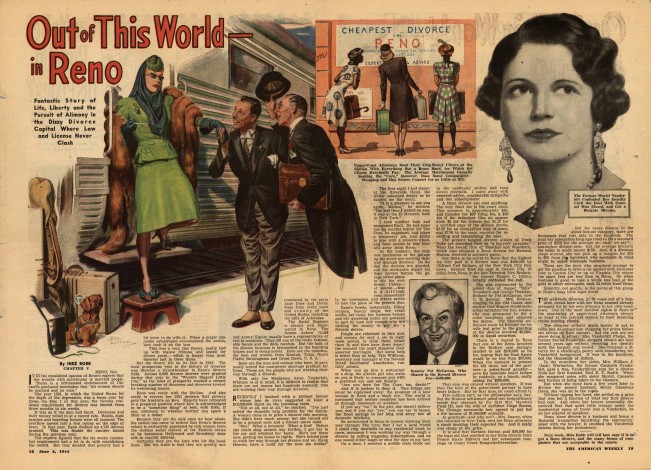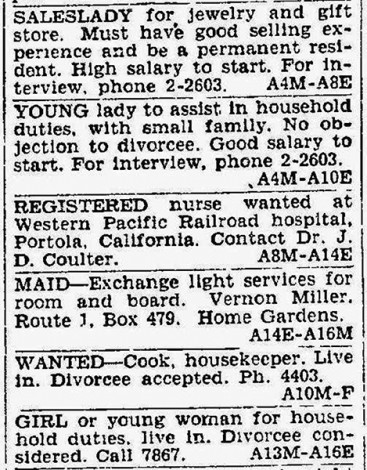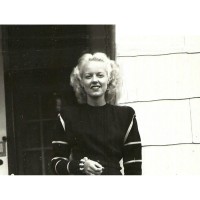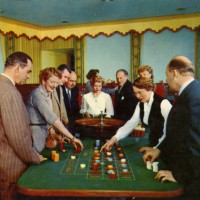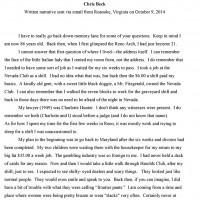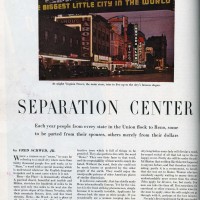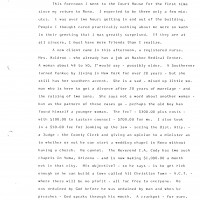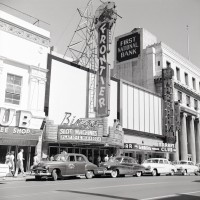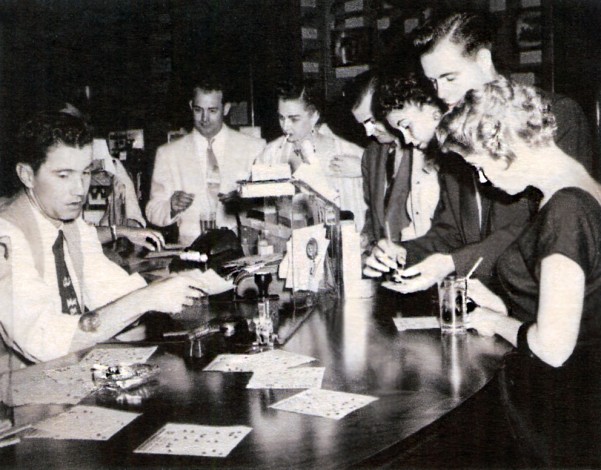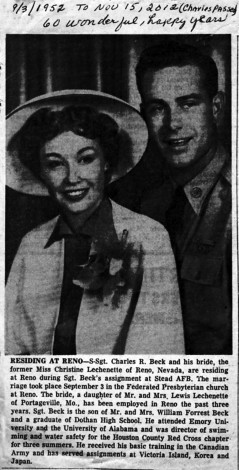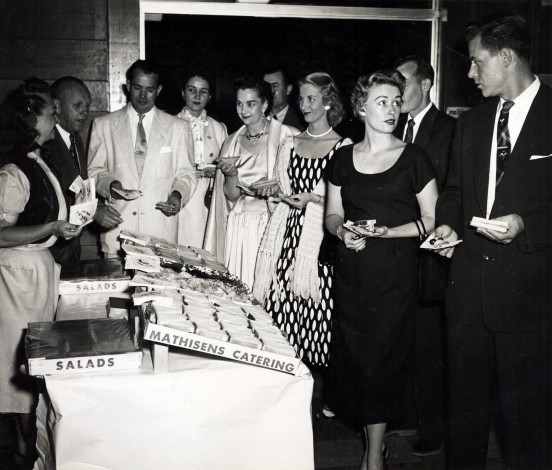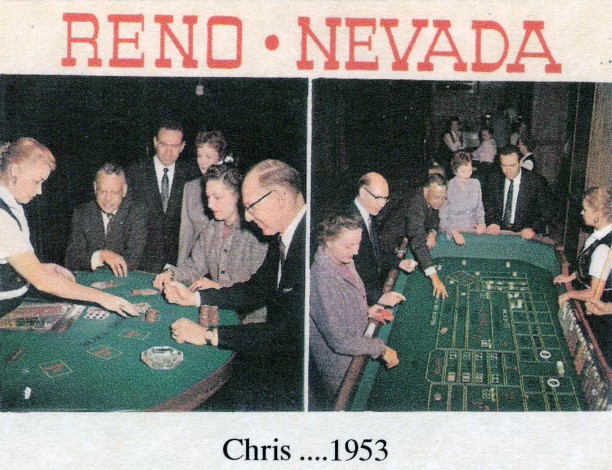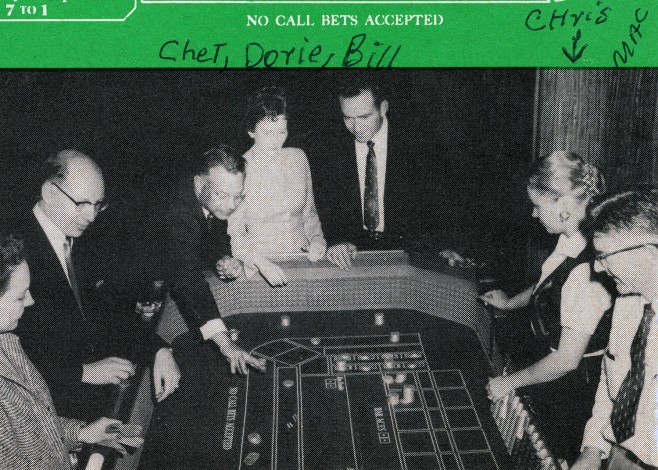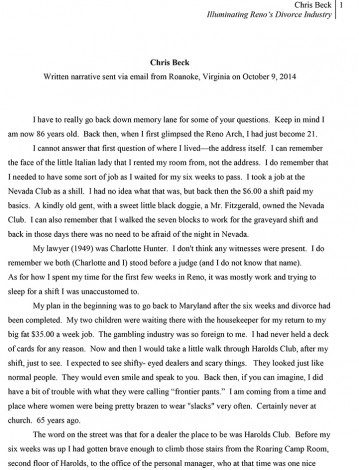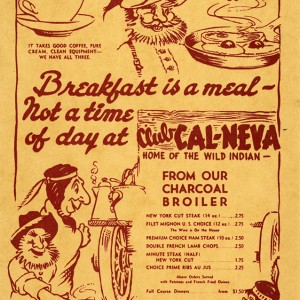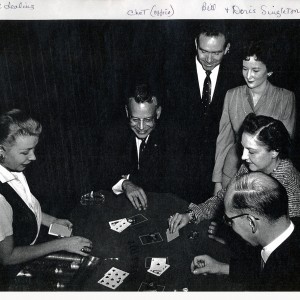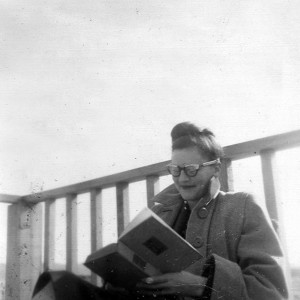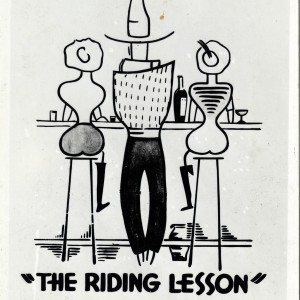Many divorce-seekers needed to work while awaiting their time in divorce court, and depending on economic conditions at any particular time, a variety of temporary jobs were available for both men and women.
Besides the typical employment opportunities, Reno offered a number of especially unique positions. In addition to work as shills and dealers, divorce-seekers could get jobs in the casinos as cocktail and coffee shop waitresses, and for those with the necessary talents and attributes, as showgirls and singers in the showrooms.
Others found work in more conventional fields, as nurses, housekeepers, waitresses, and baby sitters, or as clerks in dress shops, candy stores, and markets. Many worked as secretaries and stenographers, especially for the scores of lawyers in town.
Male divorce-seekers could find employment as ranch hands, auto and aircraft mechanics, gas station attendants, carpenters, barbers, and even some professional positions. Some men spent their time prospecting on their own or investing in mining schemes. Others worked for the Nevada Packing Company, at the Sunshine Laundry, Bob and Fred’s Sign Shop, and as picketers for the restaurant union in front of the Poodle Dog.
Featured Resources
Chris Beck
Chris Beck, from Maryland, came to Reno for a divorce in 1949. Despite never having held a deck of cards in her life, she took a job as a shill on the graveyard shift at the Nevada Club. There, she worked for Lincoln Fitzgerald, whom she described as “a kindly old gent, with a sweet little black doggie.” Her modest pay of $6 per shift easily covered her basic expenses.
Chris recalls walking the seven blocks from her rooming house without fear, a testament to Reno’s friendly and safe environment. She fully intended to return home to Maryland once she got her decree, but she had been hearing that the place to work was Harolds Club, which hired women as dealers. Before her six weeks were up, she screwed up her courage and went into the personnel manager’s office.
The salary Harolds Club paid women—including instruction in how to deal—convinced Chris that Reno would be a good place for her to start over. She was paid the salary only men were making in many areas of the country at that time. “Pappy” Smith of Harolds Club protected and valued his women dealers, and made sure they were treated with respect.
Chris brought her children to Nevada from Maryland and married an officer from Stead Air Force Base. Together, they spent ten happy years in Reno.
